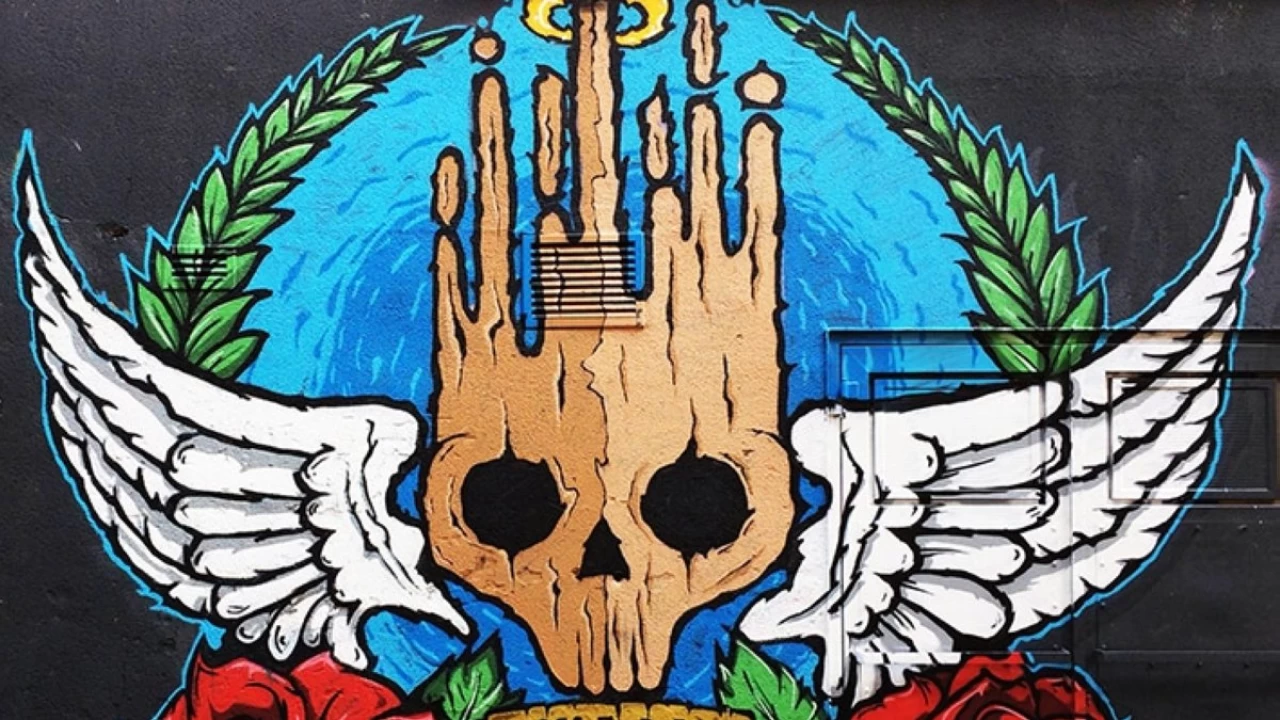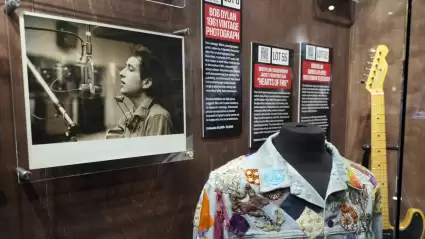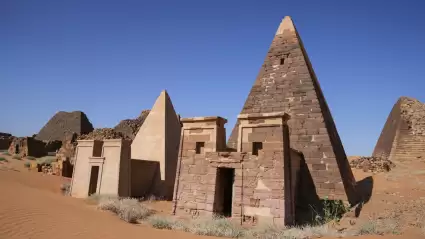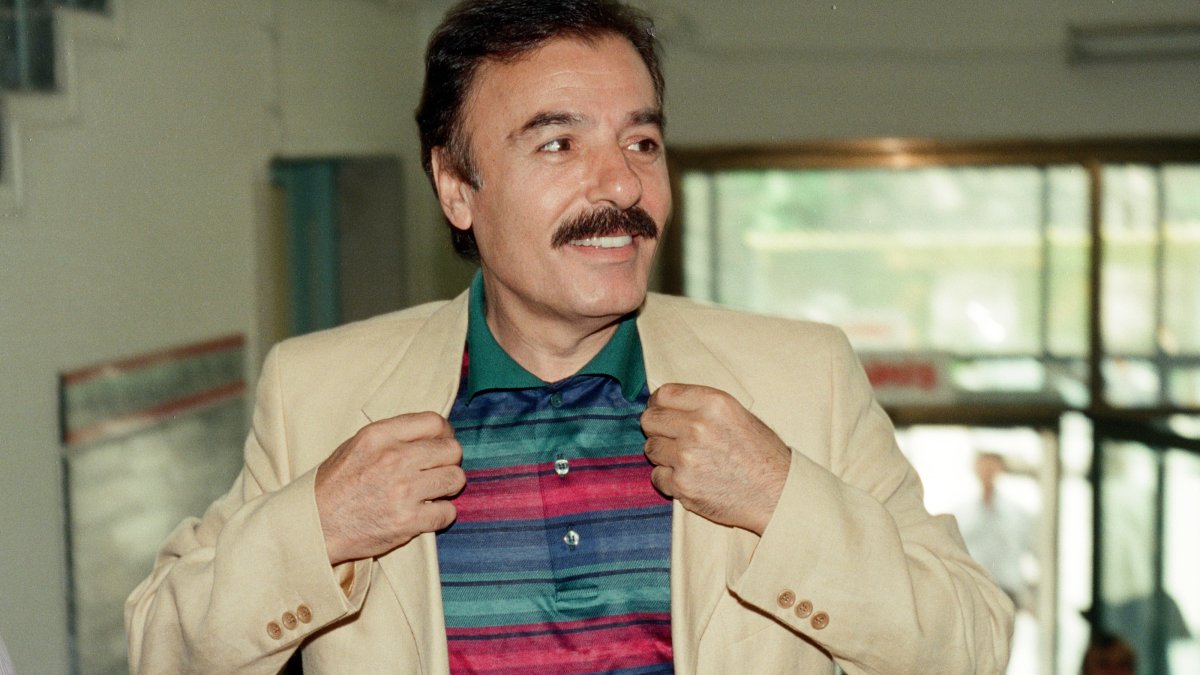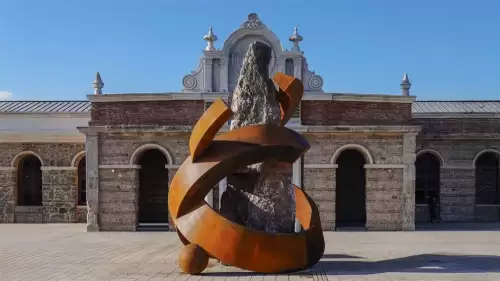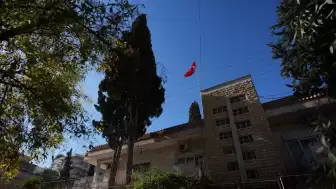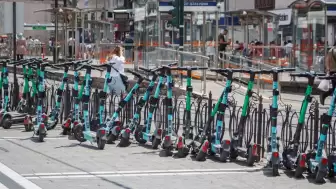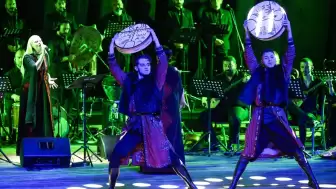Once upon a time in Istanbul’s Karaköy district, a striking piece of street art adorned a wall – a pair of angel wings with the phrase “Remember Death” nestled between them.
Created by the street artist Muhammet Emin Türkmen, known simply as MET, this artwork became a magnet for photos and a poignant backdrop for reflection.
Yet, in Türkiye, death has always held a unique place amid the country’s cultural wars.
Consider the grand cemetery in Zincirlikuyu, located in the heart of Türkiye’s corporate hub.
At its entrance, the verse “Every soul shall taste death” is inscribed above a monumental gate.
For some, it serves as a crucial reminder of life’s fleeting nature amid the chaos of modernity.
For others, it is an unwelcome intrusion – a stark confrontation with mortality amid life’s pleasures.
These conflicting views have persisted for decades, like two wings in perpetual disagreement.
Recently, a provocative billboard appeared on Istanbul’s streets, reading: “Who will wash me after I die?” It later became a teaser for "Gassal," a new production from TRT’s digital platform, Tabii.
The show’s title references the ritual of washing the deceased in Islamic tradition and its promotion sparked heated debate nationwide.
Shortly after its release, "Gassal" became a polarizing subject, emblematic of how death has reemerged as a battleground in Türkiye’s cultural wars.
Part of the show’s success lies in its lead actor, Ahmet Kural, whose past works have earned him a dedicated following, particularly among younger audiences.
Kural’s nuanced performance in Gassal bridges the gap between life and death with humor and poignancy, resonating strongly with Türkiye’s urban youth.
His ability to infuse the narrative with both levity and depth has struck a chord, making the interplay between life and death thought-provoking and deeply engaging.
Moreover, Gassal goes beyond the problematics of life and death by addressing life’s inherent challenges and the everyday struggles of younger generations striving to find their footing.
The series reflects the modern struggles of balancing hope and despair, as well as the mundane and the profound, which has amplified its resonance across a broad spectrum of viewers.
By incorporating these universal themes, Gassal connects with audiences on a deeply personal level, offering a mirror to their own trials and triumphs.
Building on the global success of Turkish dramas such as "Resurrection: Ertuğrul" and "Magnificent Century," "Gassal" is also being hailed as a potential international success story.
Its universal themes of mortality, resilience and the search for meaning, combined with its distinctly Turkish cultural and spiritual undertones, make it a strong contender for global audiences.
With streaming platforms providing new opportunities for Turkish productions to reach a worldwide viewership, Gassal is poised to continue Türkiye’s track record of producing compelling, globally resonant content.
Unexpectedly, Selçuk Bayraktar, a key figure in Türkiye’s aerospace industry, added to the conversation with a social media post praising "Gassal." Known for his technological achievements, Bayraktar’s endorsement underscored how inescapably central the theme of death is to Türkiye’s cultural wars.
Death as a topic is no stranger to the screen.
Global productions like "Afterlife" and "Six Feet Under" have explored the subject from Hollywood’s lens and Turkish audiences are no strangers to these narratives.
However, the way "Gassal" interweaves death into public and cultural consciousness feels uniquely significant—a reminder of the metaphysical amidst the mundane, igniting conversations many would rather avoid.
Years ago, MET’s “Remember Death” celebrated mortality through the vibrant lens of modern street art, reminding Istanbulites that life and death coexist in the city’s streets, just as they do in its broader rhythms.
For example, on Istanbul’s Asian side, the Karacaahmet Cemetery sits directly across from Zeynep Kamil Hospital, a maternity hospital.
Life and death are separated only by a single road – a poetic intersection that transcends coincidence, embodying İstanbul’s unique dance between existence and mortality.
As this conversation unfolds, Türkiye grapples with the dualities of life and death, modernity and tradition.
The nation, as poet Yahya Kemal once remarked, “lives with its dead.” When asked about Türkiye’s population during his diplomatic tenure in Spain, Kemal exaggerated the numbers.
Upon being questioned, he famously explained, “We live with our dead.” Türkiye’s cultural fabric intricately weaves life and death, whether in its streets, art or screens.
With Ahmet Kural’s compelling performance at its heart, "Gassal" is not only a profound exploration of mortality but also a promising ambassador of Turkish storytelling on the global stage.
By confronting mortality while also shining a light on life’s everyday struggles, "Gassal" offers a deeply human narrative that is both universal and uniquely Turkish.
As debates rage on, Istanbul continues to embody the inescapable truth that life and death are not opposites but eternal companions.

